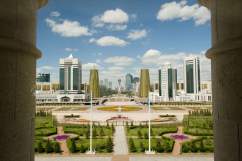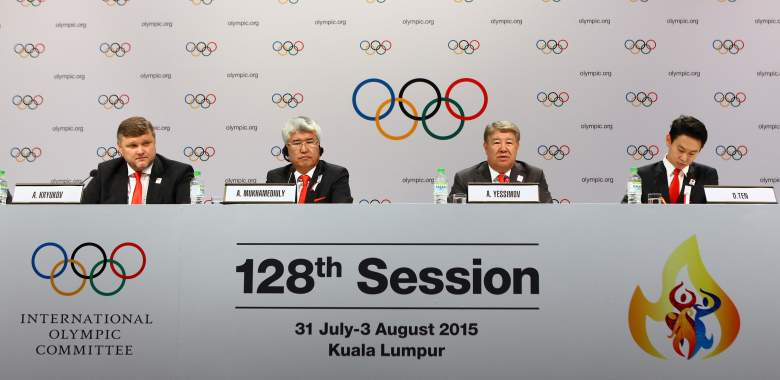
2022 Winter Olympic Games host city (Getty)
Beijing won its bid to host the 2022 Winter Olympics on Friday, beating out the Kazakhstan city of Almaty. The decision was announced in the Malaysian city of Kuala Lumpur, where the International Olympic Committee (IOC) is holding its 128th annual congress.
The vote, which was won by a small 44-40 margin, will make the Chinese capital, which hosted the Summer games in 2008, the first city to host both the Winter and Summer Olympics.
Here is what you need to know.
1. Beijing Only Had a Single Competitor
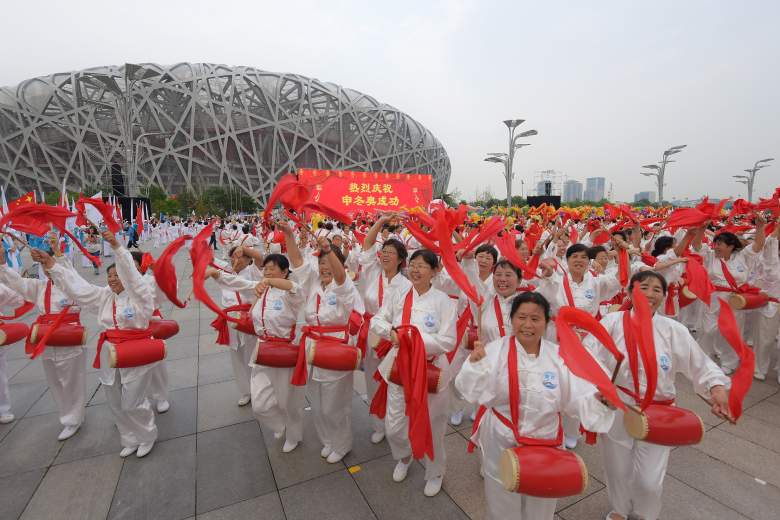
People celebrate at Olympic Plaza in Beijing (Getty)
The ultimate decision came down to Beijing and just one other city, that of Almaty in Kazakhstan. Bidding began in 2012, with Oslo, Norway also being chosen by the IOC, though the Norwegian capital ultimately pulling out due to public pressure and financial concerns.
Beijing’s bid highlighted its successful track record in running the games, as well as its proven infrastructure like the infamous Bird’s Nest Stadium left over from 2008. Almaty, on the other hand, tried to play to the fact that it would be the first ever Central Asian city to host the games, as well as its lower budget, about $6 billion, compared to what is expected to be an exponentially greater number in China.
2. There Will Be Multiple Destinations
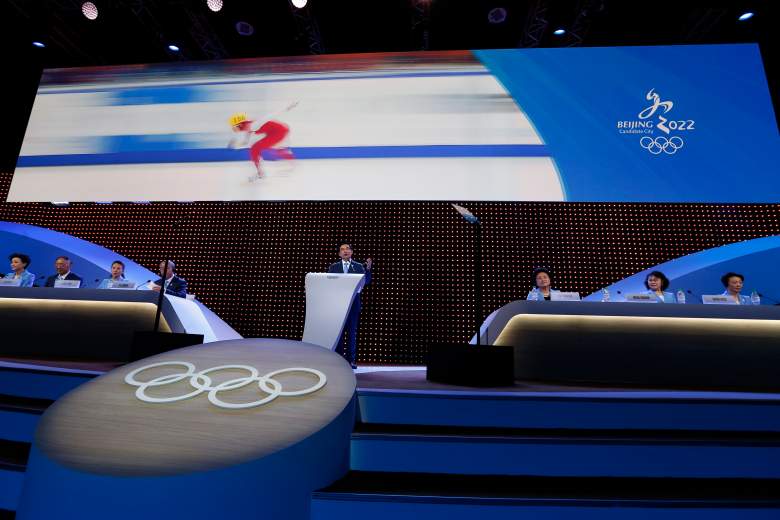
Olympic Bid Announcement (Getty)
While the Chinese capital plans to hold the city events like figure skating and hockey in downtown Beijing, the alpine sports like skiing and snowboarding will be held in two other locations, that of Yanqing, about 40 miles away and Zhangjiakou, about 90 miles.
This comes in direct contrast to the Almaty bid, which stressed that all events would be held within an 18 mile radius of the city. Chinese organizers have said that a planned high speed rail project will be completed by the 2022 start date, which is expected to cut travel times to Zhangjiakou to about an hour.
3. Almaty Wanted To ‘Keep It Real’
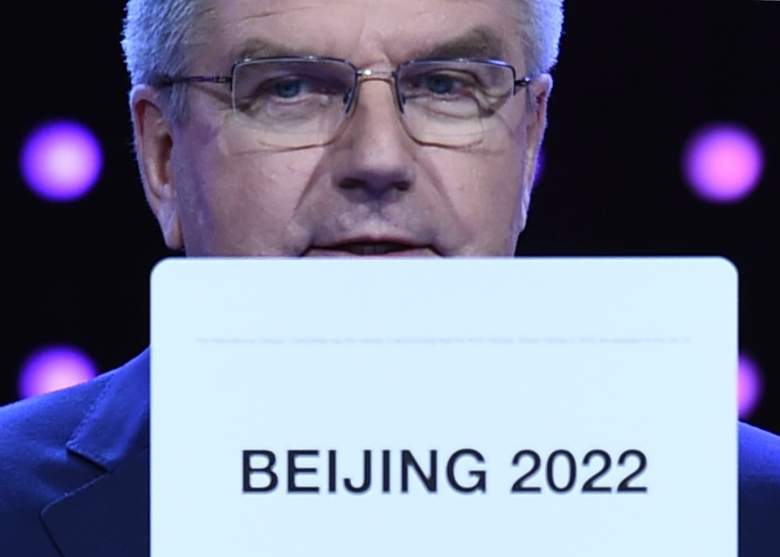
International Olympic Committee (IOC) president Thomas Bach shows the card with the name Beijing (Getty)
The slogan of the Almaty bidders was to “Keep It Real”, highlighting the fact that Beijing will have to host in multiple destinations, compared to the one in Almaty, and that Beijing has very few nearby mountains, a stark contrast to the Kazakh capital.
Indeed, Beijing will have to rely heavily on artificial snow for the games, despite Almaty’s mountains being naturally blanketed in the winter months. That planned artificial snow production has also come under increased scrutiny from environmental groups, who believe that the operation will lead to increased air pollution, a problem that already plagues the Chinese capital.
Beijing’s slogan, on the other hand, was “Joyful Rendezvous Upon Pure Ice and Snow”, an allusion, perhaps, to their successful hosting in 2008.
4. Human Rights Groups Were Concerned With Both Bids
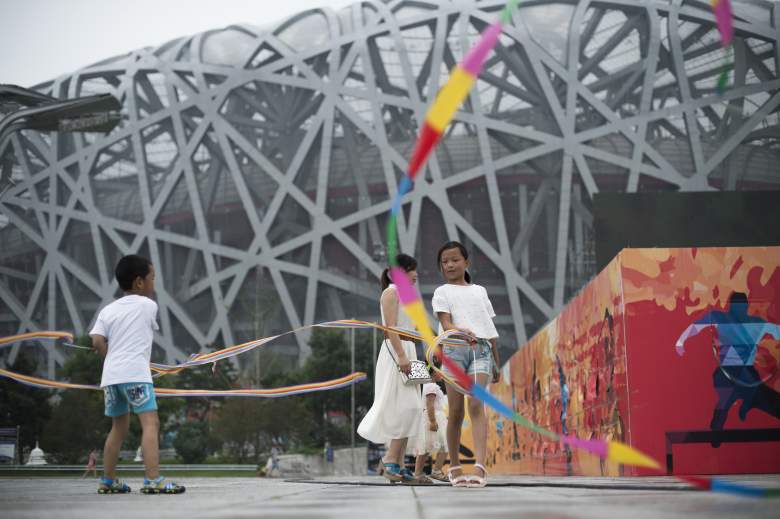
Children play in front of the Bird’s Nest stadium in Beijing (Getty)
Human Rights Watch outlined a report in 2014 citing multiple human rights concerns in the Kazakh capital, among them an increased crackdown on free speech, assembly, and religion, as well as a flawed justice system that sees government dissidents and protesters often jailed with little or no evidence. There have also been widespread reports of torture occurring throughout the country, something which undoubtedly marred their bid with the IOC.
Likewise, China has also faced scrutiny for its own human rights records, particularly in the build up to and during the 2008 Summer Olympics. According to a report by Human Rights Watch, China increasingly violated freedom of speech and assembly, as well as freedom of the press, before, during, and after the games. There were also multiple concerns about the conditions of migrant workers, an issue that has received considerable press attention recently given the situations with Rio’s 2016 Olympics and Qatar’s 2022 World Cup bid.
5. Beijing Hopes the Olympics Will Promote Winter Sports
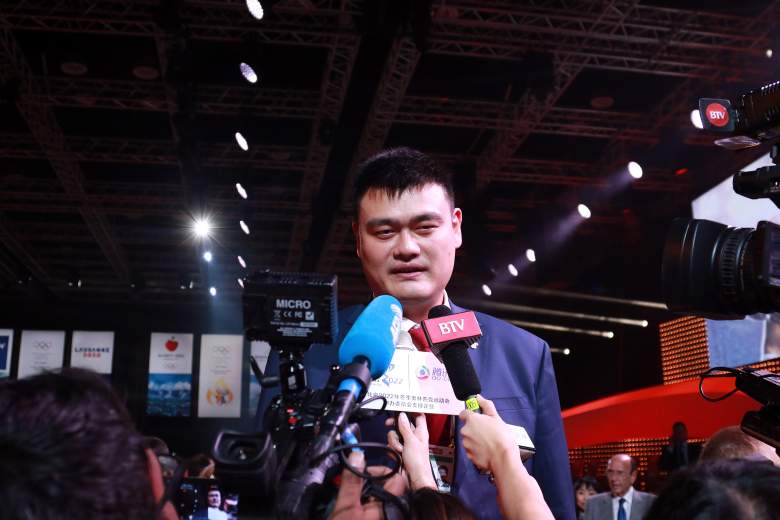
Yao Ming Speaks to Reporters (Getty)
Speaking at a press conference before the vote, Chinese national and former N.B.A. all star Yao Ming said it was the “right time” for Beijing to host the games.
Indeed, Beijing hopes that the Winter Olympics will help in promoting winter sports to its more that 300 million citizens, the largest in the world. According to The New York Times, China has already created a $30 million program that is intended engage its population and produce high quality athletes in sportslike skeleton and bobsled that are typically dominated by Nordic countries.

